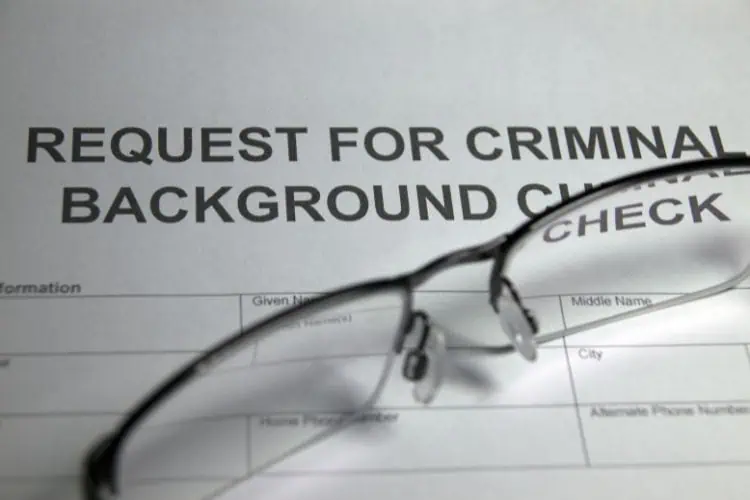Thoroughly screening potential tenants is one of the most important steps a landlord can take when renting out a property.
Taking the time to carefully evaluate prospective tenants can help find responsible, reliable long-term renters and minimise risks like missed payments or property damage.
The screening process involves multiple components, including rental applications, background checks, interviews, and assessing the ability to pay rent on time.
While it takes some effort, proper tenant screening is essential for establishing successful landlord-tenant relationships in Australia.
TL;DR
To find suitable tenants, carefully review rental applications, run background checks, interview applicants in person, verify income and expenses, contact references, inspect previous rentals, and make informed decisions based on all factors.
The Basics of Tenant Screening
Tenant screening refers to the process landlords and property managers use to evaluate and select applicants to rent their rental properties.
The main goals of screening are to identify responsible tenants who will pay rent on time, properly maintain the property, follow rental agreements, and stay for the duration of the lease.
Key steps in the screening process include:
- Rental Applications – Collecting information on identification, residence history, employment, income, and references.
- Background Checks – Verifying identity and searching for any red flags in credit, criminal, or eviction records.
- Interviews – Meeting applicants in person/by phone to assess personality and behaviour.
- Assessing Affordability – Reviewing income and expenses to determine if tenants can pay rent.
- Making a Decision – Weighing all factors to select the best fit for the property.
Thorough potential tenant screening helps minimise risks for landlords and leads to mutually beneficial landlord-tenant relationships.
For tenants, it helps to know how to check your tenant screening report.
The Rental Application
The rental application provides the starting point to learn about prospective tenants. Standard information collected includes:
- Full legal name and contact details
- Current and previous addresses for the last 5-10 years
- Current employers and salaries to assess income
- Employment history for the last 5-10 years
- References from previous landlords or other character references
- Identification like driver’s licence, passport, birth certificate
- Emergency contact details
- Pet details if pets will live on the property
Reviewing applications helps determine if tenants will be able to afford the monthly rent. Look for stable employment and income history without large gaps. Contact previous landlords to check rent payment history and property care. Follow up on any missing or incomplete details.
According to privacy regulations, landlords need written consent to collect certain private data like identification numbers, bank details, and credit reports. Become familiar with laws regarding the use of personal information.
Tips for Verifying Rental History
- Contact previous landlords to check rental payment history, fulfilment of lease terms, property condition upon leaving, and reasons for leaving.
- Look for consistent on-time payments, compliance with rules, positive feedback, and valid reasons for moving like job relocations.
- Beware of evictions, property damage, complaints, unpaid rent, or sudden departures which could indicate risk.
- Require explanations for any gaps between rentals, such as staying with family or friends.
Tips for Checking Personal References
- Applicants should provide 2-3 personal references who can speak to their character.
- Contact references by phone or email to ask about the applicant’s personality, behaviour, lifestyle, financial responsibility and potential issues.
- Positive feedback about trustworthiness and responsibility indicates lower risk.
- Take note of any concerns raised regarding cleanliness, noise levels, rudeness, illicit activities, or other problems.
- Consider reviews from previous room-mates especially insightful regarding living compatibility.
Inspecting Previous Rentals
Take the time to inspect applicants’ current or previous rental properties in person when possible. Schedule visits with sufficient notice and the current landlord’s approval.
Observe the condition, cleanliness and maintenance of the property. Are there signs of damage, neglect, safety hazards or lease violations?
Also, assess noise levels, odours, appearance, and ambience created by the tenants’ lifestyle. How the prospective tenants live day-to-day in a rental can provide useful insights into their responsibility, conscientiousness and respect for property.
Any major issues or damages should give landlords pause when considering applicants. Responsible tenants who value housing quality are ideal candidates for renting out property long-term.
Conducting Background Checks
Background checks help verify application details and reveal any past issues involving applicants.
Common checks include:

- Credit Reports – Providing insight into financial responsibility based on payment history, debts, bankruptcies, and credit score. Obtain credit reports from Equifax, Illion or Experian.
- Criminal Records – Checking for any convictions for illegal or dangerous activities. Obtain national criminal history record checks from local police or the Australian Criminal Intelligence Commission.
- Tenancy Databases – Monitoring for any past evictions or rental disputes. Check TICA, National Tenancy Database, or state tenancy record services.
- Reference Checks – Confirming details and performance with previous landlords, employers, or other references.
Look for patterns of on-time payments, stable finances, positive remarks from references, and absence of red flags.
Be sure to operate within anti-discrimination laws regarding protected classes. Inform applicants before running checks and provide adverse action letters if denying tenancy based on results.
Interviewing Prospective Tenants
Meeting applicants in person or over the phone allows landlords to get a sense of personality and behaviour. Prepare 5-10 screening questions to ask all candidates consistently, such as:
- Why are you moving from your current residence?
- How do you normally pay your rent (cheque, direct deposit, etc)?
- Have you ever been evicted or asked to leave a property?
- How many people will live in the unit? Are you comfortable with occupancy limits?
- Do you have pets? Have pets ever caused property damage?
- Do you smoke? Are you comfortable with no-smoking policies?
- When would you be able to move in? How long are you looking to rent?
Pay attention to how applicants communicate, conduct themselves, and respond to questions. Assess if they seem trustworthy, tidy, pleasant, and financially stable.
Spend time touring the property together to get a sense of fit regarding cleanliness, lifestyle, etc. Follow up with references on any new details or concerns that arise.
Assessing the Ability to Pay Rent
Focus part of the screening process on whether prospective tenants can reliably handle monthly rent:
- Review total monthly income from employment, benefits, pensions, investments, etc. Require recent proof like pay stubs, tax returns, bank statements, or official letters.
- Ask about current expenses for debt, loans, child support, etc. to calculate disposable income.
- Follow the 30% rule; rent should be less than 30% of gross monthly income to be affordable.
- Verify on-time rent payment history without lapses, evictions, or building arrears.
- Avoid tenants with unsteady work histories, excessive debts, or low incomes unless they can provide guarantors.
Requiring security deposits reduces risk, provided they comply with legal limitations. Monitor rent payments diligently once tenancy begins.
Having tenants automatically pay rent via direct bank transfer helps ensure regular on-time payments.
Making the Final Decision
Review all the details gathered from rental applications, background checks, interviews, and affordability assessments to make an informed final decision.
Compare and rank multiple qualified applicants if necessary. Objectively evaluate who seems most responsible, financially stable, cooperative, and likely to follow rental agreements.
Be sure to follow all fair housing laws prohibiting discrimination based on protected classes like race, religion, family status, disabilities, etc.
Draft a standard lease agreement for successful applicants to sign that outlines the legal rights and obligations of both parties.
Notify rejected applicants promptly and return any security deposits paid.
Handling Security Deposits

Many landlords in Australia require standard security deposits from tenants which offer protection from property damage or unpaid rent.
Common deposit policies include:
- An amount equal to 2-4 weeks’ rent
- Due at lease signing before move-in
- Held in a regulated trust fund account
- Refunded within 14 days after the tenancy ends if no money is owed
- May be partially or fully withheld for damage repairs, deep cleaning, unpaid rent/bills, etc.
Be sure to issue receipts for all deposit payments and record details like date, amount, property, names, and signatures.
Avoid unethical practices like charging excessive deposits or making unfair deductions. Utilise condition reports and photographs to prove any damages warranting deposit withholding.
Return deposits promptly when tenancy ends following all legal timelines and specifications. Provide detailed invoices explaining any amounts deducted and the reasons why.
Wrap Up
While screening potential tenants takes time upfront, it pays off through years of positive rental experiences and minimal disruptions.
Use rental applications, background checks, interviews and affordability assessments to gain a complete picture of prospective tenants.
Weigh all factors carefully to select reliable renters who meet your qualifications, and be sure to operate lawfully, ethically and objectively when conducting the screening process.
With proper diligence in finding suitable tenants for your rental property, all parties can enjoy a mutually beneficial landlord-tenant relationship in Queensland and across Australia.
